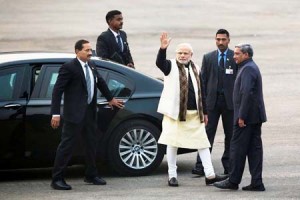The Guardian
Paul Stevens
- The crash in crude oil prices has huge implications for geopolitics, climate change and even our pensions
 It’s been many years since the motorist had such a warm feeling at the petrol pump. Whoever thought they would be able to fill the car at prices as low as 90p a litre? Take advantage; fill up that tank. But don’t delude yourself that this is an unalloyed benefit. Instead be aware of the dynamic that has delivered cheap petrol to your tank, and of its serious implications.
It’s been many years since the motorist had such a warm feeling at the petrol pump. Whoever thought they would be able to fill the car at prices as low as 90p a litre? Take advantage; fill up that tank. But don’t delude yourself that this is an unalloyed benefit. Instead be aware of the dynamic that has delivered cheap petrol to your tank, and of its serious implications.
How did we get here? Since June 2014, the price of crude oil has fallen by over 70%. The reason is supply and demand, and the economics of oil markets. From the start of the Arab spring uprisings in Tunisia in January 2011, oil producers in the Middle East and north Africa sought higher oil revenues to keep people off the streets and out of the squares. That required higher oil prices – which for some time they managed to achieve. From 2011 to June 2014, prices averaged at $97 a barrel. The shale gas revolution in the US also had an impact. Production there increased by almost 5m barrels a day between 2008 and 2015 – unprecedented in the history of the industry. You don’t need a Nobel prize to realise that high prices in a market so oversupplied with oil were simply unsustainable.
In the summer of 2014, as prices began to slide, Saudi Arabia reduced its output to balance the market, but soon it had a rethink. Between 1980 and 1985 it reduced supply – from 10.5m to 2.5m barrels a day – to keep prices high, but suffered serious economic consequences. So in September 2014, Saudi drew a proverbial line in the sand, deciding not to protect the price but to prioritise defence of its market share.
The conspiracy theorists had a field day: this was obviously a political attack targeted at Russia, at Iran, at Iraq, at the US, they said. The reality was much simpler. Saudi Arabia aimed to marginalise the high-cost producers to the benefit of low-cost producers – like Saudi Arabia. The fact that these high-cost producers were for the most part also American was purely coincidental.
How long can we stay here? That’s hard to predict, because this is such an unusual place to be. An agreement was reached halfway through this month between Saudi Arabia, Russia, Venezuela and Qatar to limit their production, but this has no credibility whatsoever. Russia has been involved in such deals before and has rapidly reneged on them. After a brief flurry of interest the markets correctly dismissed the deal, and oil prices have since resumed their downward trend. Put into perspective, prices are low, but historically not that low. Between 1986 and 2004, the price in real terms hovered around $33 a barrel compared with the average price last week of about $32.
However – and this is crucial – it is a much lower price compared with the last 10 years, when prices averaged $85 in real terms. It is trading at a price that few are accustomed to.
So what should you be thinking as you fill your tank? In short, that lower prices in the UK mean good and bad news. You reap the benefit of the former; the price of petrol has fallen from about £1.40 a litre in 2011 to £1 and less in January this year. This is not as much as the fall in crude prices because of the fixed amount taken in tax. Of the price of oil products to the final consumer in 2014, more than 60% went as tax to the UK government. Nonetheless, lower prices put more money in consumers’ pockets with beneficial effects to the economy.
In the good old days, when financial markets had some understanding of economics, lower oil prices would have also boosted expectations for growth and pushed up share prices. In today’s world of economic illiteracy and “irrational exuberance”, this is no longer true. Globally, falling oil prices are now seen as bad news for stock markets.
But there is more bad news in the price you are paying. These lower prices are having serious impacts on employment. The North Sea is not as important to the UK as in the early 1980s, when it generated £12bn for government revenues, compared with £4.7bn today. Some 23,000 jobs are expected to go in the North Sea over the next five years and many will never come back as the workforce ages.
Future British production is also in doubt. It will rely on existing platforms and pipelines, which are ageing and reaching their sell-by date, or investment in new infrastructure, which is unlikely to appear in this lower price world. The industry body Oil and Gas UK has said that less than £1bn is likely to be spent on new projects this year, as opposed to the £8bn spent on average every year over the past five years. British oil that is not produced in the next five to 10 years may never be produced.
Think too of what it means around the world, for already there are dramatic reductions in investment in conventional oil production. In January the commercial intelligence analysts Wood Mackenzie estimated that $400bn of projects have been postponed or cancelled. This involves 68 that account for 27bn barrels of reserves, equivalent to the combined reserves of Norway, UK, Mexico and Oman.
Assuming oil demand continues to grow, as the consensus argues, this lack of investment is very serious for an industry where the natural depletion of oil fields requires producers to run to a stand still. Over the next decade it is possible we’ll have an ever-tightening market, leading to instability and the threat of price shocks. There will be problems for large oil companies in this lower price world as their share values fall. And if you wonder if this matters to you, just remember the pensioners who depend on stock market valuations for their pensions. In February 2015, before the price collapse really started, oil firms accounted for more than 13% of the value of the FTSE 100 share index.
Another source of concern is what lower prices mean for the drive to replace fossil fuels and offset the march of climate change. Suddenly, renewables begin to look relatively more expensive, and this could undermine the progress made last year at the Paris climate change talks to reduce burning carbon.
But what should really occupy your thoughts is the geopolitics of oil. The price wars have contributed to poor relations between Saudi Arabia and Iran. Apart from any other consideration, this makes any agreement over ending the war in Syria distant, with potentially devastating consequences for the stability of the region.
To find an earlier period of such instability in the Middle East you need to go back to 1918 – the end of the first world war and the collapse of the Ottoman empire. To be somewhat parochial, what this might mean for the flow of desperate refugees and migrants to Europe beggars belief. Furthermore, a consequence of many oil producers facing serious economic problems is that countries as diverse as Venezuela, Nigeria, Angola and Algeria, to name but a few, will face serious internal political dissent as their governments, short of revenue, find they no longer have the funds to buy off their populations.
Human suffering, political unrest, delayed climate change action; surely it is worth thinking about all this when we fill up with cheap petrol?




